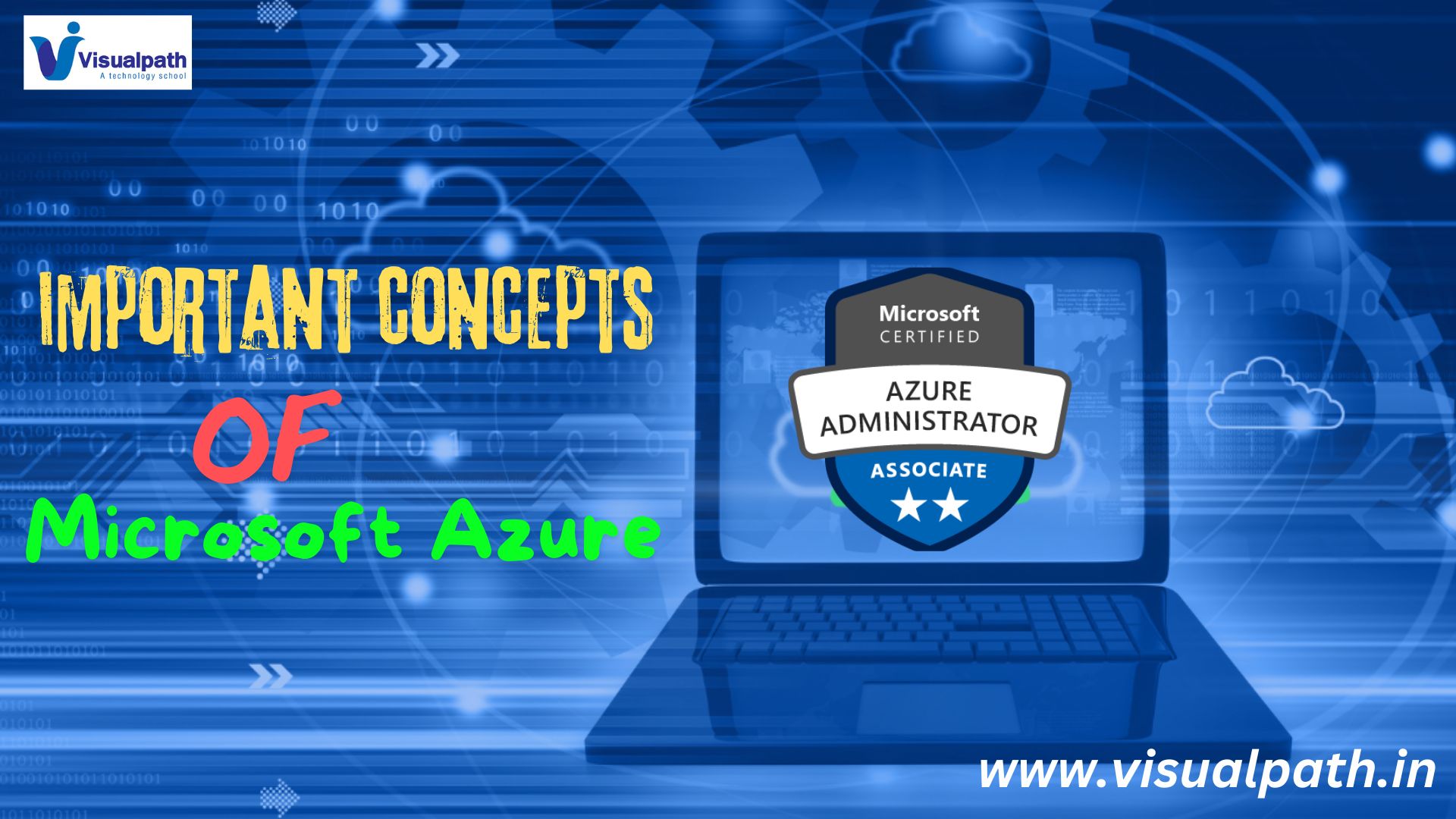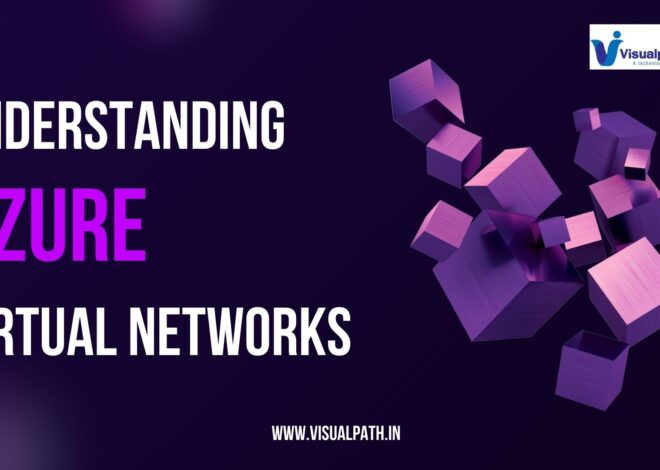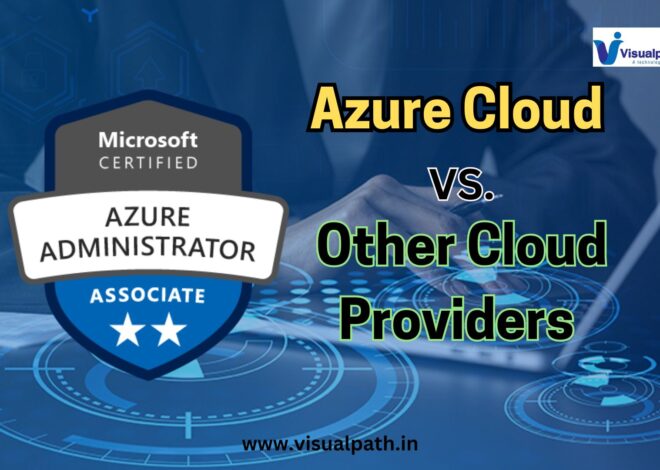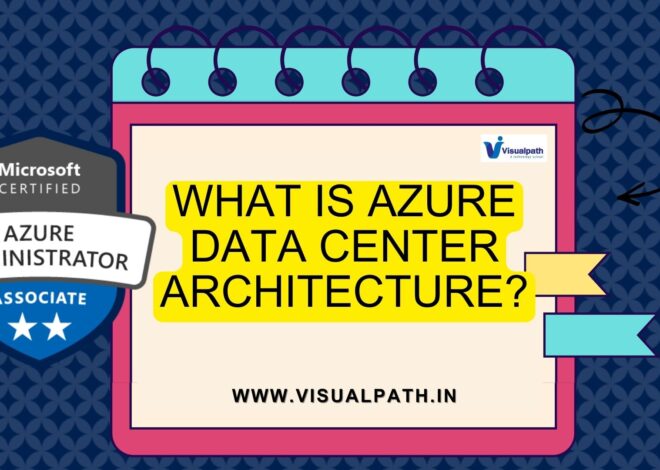
What are the most important concepts of Azure?
Introduction:
Microsoft Azure is a comprehensive cloud computing platform that provides a wide array of services and solutions for building, deploying, and managing applications through a global network of data centres. Understanding the key concepts of Azure is crucial for leveraging its full potential. the most important concepts: Microsoft Azure Administrator Training
1. Azure Regions and Availability Zones
Azure operates in multiple geographic regions around the world, with each region containing multiple data centres. Availability Zones within these regions provide high availability by being physically separate locations with independent power, cooling, and networking.
2. Resource Groups
Resource Groups are containers that hold related Azure resources, such as virtual machines, storage accounts, and databases. They provide a way to manage and organize resources for easier deployment, monitoring, and billing.
3. Azure Resource Manager (ARM)
The Azure deployment and management service is called Azure Resource Manager. It provides a consistent management layer that enables users to create, update, and delete resources in their Azure account, and it supports templates for automating the deployment of resources. Microsoft Azure Online Training
4. Compute Services
Numerous compute services are available via Azure, such as:
- Virtual Machines (VMs): Scalable and flexible compute resources for running applications.
- Azure Kubernetes Service (AKS): Managed Kubernetes for containerized applications.
- App Services: Platform as a Service (PaaS) for web apps, RESTful APIs, and mobile backbends.
5. Storage Services
Azure provides multiple storage solutions to meet diverse needs:
- Blob Storage: For unstructured data like images and documents.
- File Storage: Managed file shares accessible via the SMB protocol.
- Queue Storage: Messaging for communication between components of cloud applications.
6. Networking
Azure networking services include:
- Virtual Networks (V Nets): Isolated networks for Azure resources.
- Azure Load Balancer: Distributes traffic among multiple resources.
- VPN Gateway: Secure connections between on-premises networks and Azure.
7. Databases
Azure supports several database options:
- Azure SQL Database: Managed relational database service.
- Cosmos DB: Globally distributed, multi-model database service.
- Azure Database for MySQL/PostgreSQL: Managed database services for MySQL and PostgreSQL are offered by Azure Database.
8. Identity and Access Management
Azure Active Directory (AD) provides identity and access management for securing resources. It supports single sign-on, multi-factor authentication, and integration with on-premises Active Directory. Microsoft Azure Training in Ameer pet
9. Monitoring and Management
Azure offers robust monitoring and management tools:
- Azure Monitor: Comprehensive monitoring solution.
- Azure Cost Management: Tools for managing and optimizing cloud spending.
- Azure Policy: Monitor and enforce compliance with organizational standards.
10. Security
Azure emphasizes security with services such as:
- Azure Security Centre: Unified security management and advanced threat protection.
- Azure Key Vault: Securely store and manage sensitive information like keys and secrets.
Conclusion
Understanding these core concepts helps users effectively navigate Azure, optimize resources, and ensure robust security and compliance. Whether you are developing, deploying, or managing applications, mastering these essentials is key to successful cloud operations with Azure. Azure Admin Online Training
Visualpath is the Best Software Online Training Institute in Hyderabad. Avail complete Azure AI Engineer Associate (AI-102) worldwide. You will get the best course at an affordable cost.
Attend Free Demo
Call on – +91-9989971070
WhatsApp: https://www.whatsapp.com/catalog/917032290546/
Visit: https://visualpath.in/windows-azure-online-training.html



